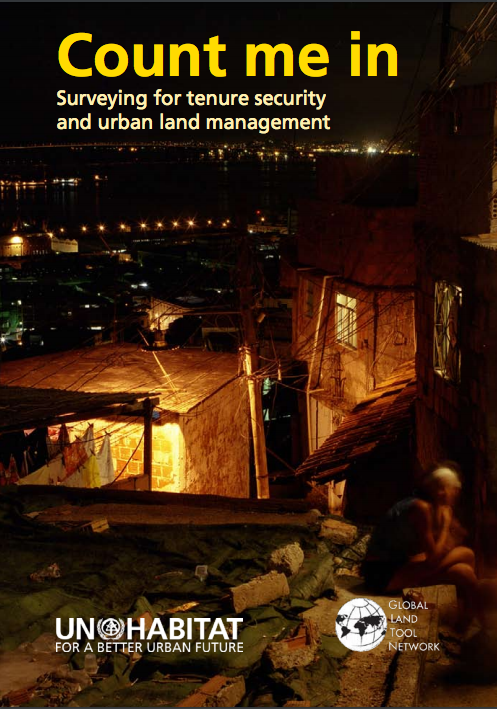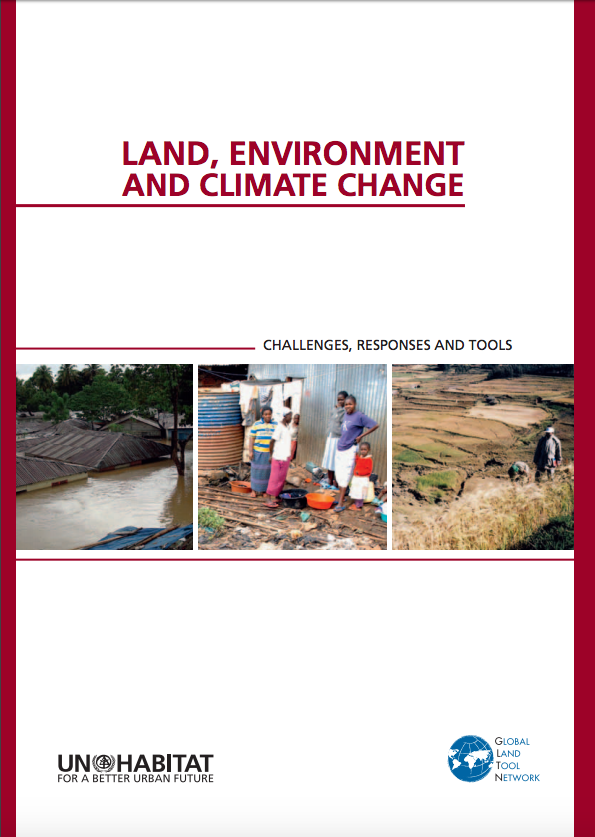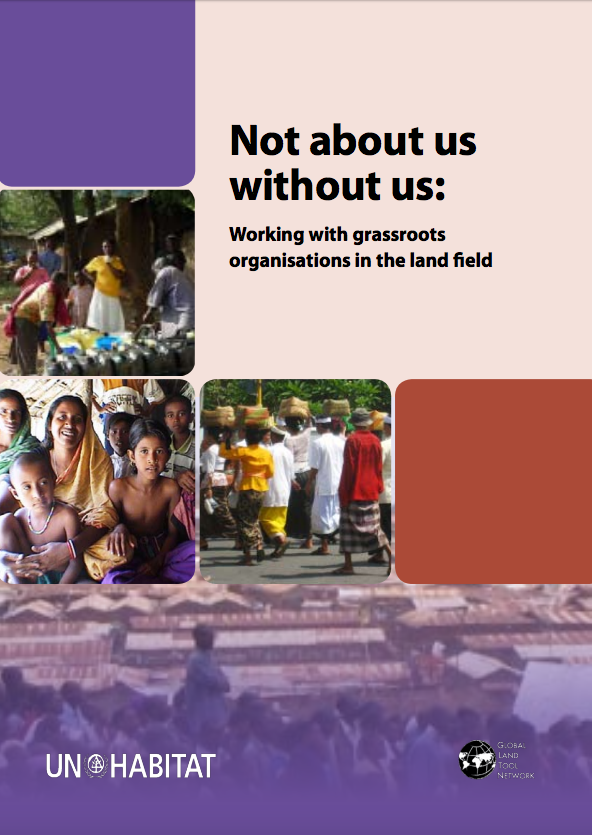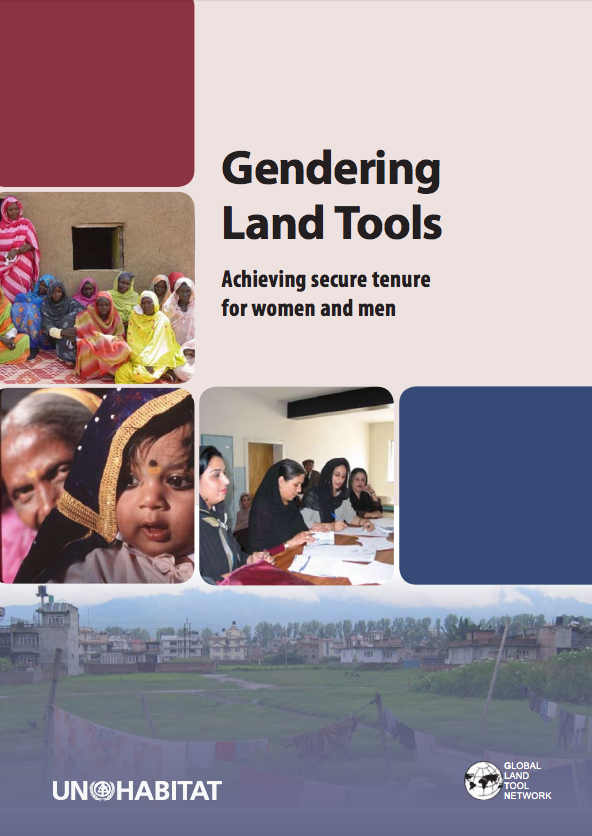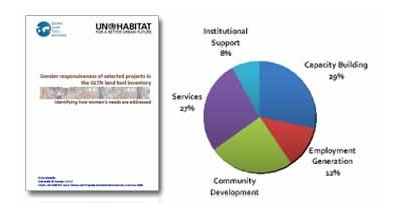Focal point
Location
The Global Land Tool Network (GLTN) is an alliance of global regional and national partners contributing to poverty alleviation through land reform, improved land management and security of tenure particularly through the development and dissemination of pro-poor and gender-sensitive land tools.
Secure land tenure and property rights are fundamental to shelter and livelihoods as well as the realisation of human rights, poverty reduction,economic prosperity and sustainable development.
The Global Land Tool Network (GLTN) main objective therefore is to contribute to poverty alleviation and the Millennium Development Goals through land reform, improved land management and security of tenure.
UN-Habitat through GLTN continues to work towards this with partners who include international civil society organizations, international finance institutions, international research and training institutions, donors and professional bodies.
Most developing countries use conventional land administration systems which cover less than 30 per cent of the country, leaving up to 70 per cent of citizens looking to informal and/ or customary approaches for their tenure security.
While there are many examples of good land policies, there are few policies that have been fully implemented due to lack of pro-poor, gendersensitive and largescale land tools. Further, conventional land titling approaches have largely failed to deliver their expected results since existing technical solutions are too expensive, inappropriate for the range of tenure found in developing countries, unsustainable financially or in terms of available capacity, and instead a range of land tenure options is more appropriate.
Core Values
Consequently, GLTN's core values and principles are founded in the development of land tools that are:
- Pro poor;
- Equitable;
- Sustainable;
- Affordable;
- Systematically large scale /scalable; and,
- Gender-sensitive, while taking into consideration:
- Good governance;
- Subsidiarity; and,
- The Continuum of Land Rights.
GLTN Objectives and Mandate
GLTN has developed a global partnership on land issues pulling together global partners, as well as many individual members. These partners include international networks of civil society, International Finance Institutions, international research and training institutions, donors and professional bodies. It continues to take a more holistic approach to land issues by working towards the following objectives:
- The establishment of a continuum of land rights, rather than just focus on individual land titling
- Improving and developing pro-poor land management, as well as land tenure tools
- Unblocking existing initiatives Assisting in strengthening existing land networks
- Supporting in the development of gendered land tools which are affordable and useful to grassroots
- Improving the general dissemination of knowledge about how to improve security of tenure
- Improving the general knowledge dissemination on the improvement of security of tenure
Resources
Displaying 266 - 270 of 286Count me in: Surveying for Tenure security and Urban Land Management
The young man was scared. The city government had instructed him to count the shacks in the settlement. He arrived smartly dressed carrying a briefcase and clipboard with pen in hand and a list of the shacks. His job was to find any new shacks without the official number painted on the door. But he immediately ran into problems. The local residents confronted him, asking what he was doing. Soon a small crowd had gathered. They took him into the community hall, where a meeting was under way. He explained that the city had sent him, but the local people were suspicious.
Land,Environment and Climate Change: Challenges,Responses and Tools
This publication provides an overview of some the most important land-related environmental and climate change problems that the world is facing. land, Environment and climate change offers an overview of the relationship between land tenure, land management approaches and the environment. this document identifies clear linkages between land, environment and climate change, moving from a scientific framework to a country level implementation framework. the implications this has in urban and rural areas are presented, and illustrated with 20 brief cases.
Not about Us without Us: Working with grassroots organisations in the land field
This publication, from the Global Land Tool Network, presents the grassroots mechanism it plans to promote for the effective inclusion of local community groups (grassroots). The involvement of the grassroots is crucial at all stages of land-related processes. However, many pro-poor land policies are developed and implemented with weak grassroots participation, leading to project failure or outcomes that do not assist women or people living in poverty.
Gendering Land Tools: Achieving secure tenure for women and men
This publication, from the Global Land Tool Network, presents a mechanism for effective inclusion of women and men in land tool development and outlines methodologies and strategies for systematically developing land tools that are responsive to both women and men’s needs. Equal property rights for women and men are fundamental to social and economic gender equality. However, women often face discrimination in formal, informal and customary systems of land tenure.
Gender responsiveness of selected projects in the GLTN land tool inventory: Identifying how women’s needs are addressed
[via UN-HABITAT] GLTN considers gender as a critical cross-cutting theme in the work on promoting pro-poor, large-scale land tools (for more information on GLTN see www.gltn.net). This short report summarises an analysis undertaken by the GLTN Secretariat to assess how women’s rights, and specific needs, are being addressed by selected projects in the GLTN land tool inventory—a database consisting of numerous international development projects in the land sector is available on the website.





